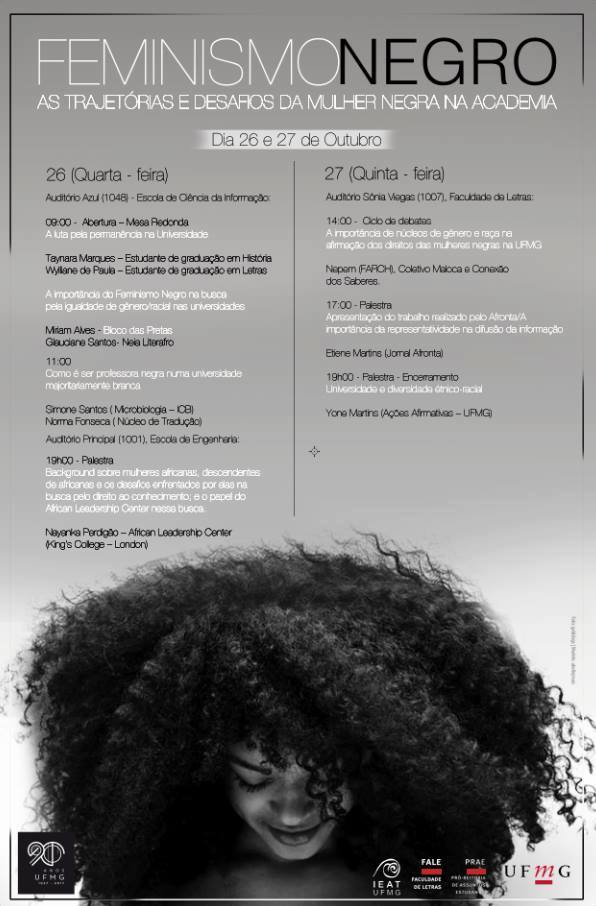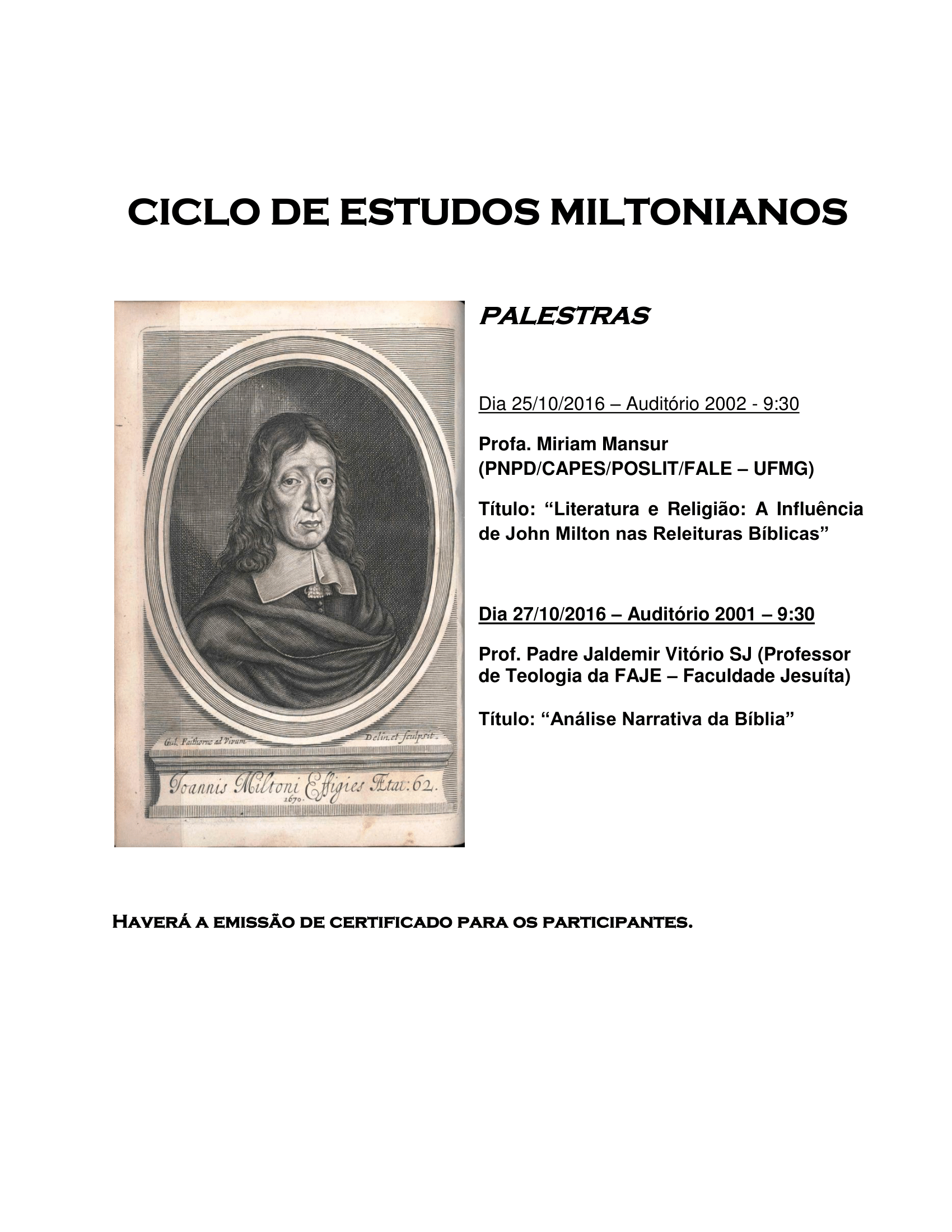Conferência de Christian Moser (Universidade de Bonn): Globalização e Barbarismo – a criação do mundo nas narrativas pós-iluministas da sociedade civil (em inglês - cf. Abstract abaixo do resumo em português).
O Programa de Pós-Graduação em Estudos Literários (Poslit) da Faculdade de Letras e o Núcleo Walter Benjamin convidam para a conferência “Globalização e Barbarismo: a criação do mundo nas narrativas pós-iluministas da sociedade civil” (em língua inglesa) do prof. Christian Moser da Universidade de Bonn/Alemanha, segunda-feira, 24 de outubro, no auditório 2001.
Segundo o argumento de Roland Robertson, a globalização não envolve apenas a “compressão do mundo” em termos espaciais e temporais, resultando de processos econômicos, políticos e tecnológicos de integração, mas também a “intensificação da consciência do mundo como um todo”, conduzindo assim à questão sobre a geração dessa consciência. Desde que os homens são habitantes do mundo, o mundo “como um todo” não se adapta à percepção humana. Sendo assim, a ideia do mundo como um todo é fruto da representação cultural. Os discursos sobre a globalização dependem de um ‘imaginário global’, uma séri e de tropos, figuras e narrativas que permitem às pessoas de conceber o mundo como uma totalidade. Um dos tropos mais importantes é o próprio globo. De acordo com o sociólogo Urs Stäheli, o globo “é a figura teleológica da completude”. Consequentemente, os críticos da globalização tentaram substituir o globo por tropos alternativos, como no caso da figura do “glomus” (Jean-Luc Nancy) ou a figura do “planetário” (Gayatri Chakravorty Spivak). Contudo, uma análise mais aprofundada mostra que a figura do globo está longe de ser unívoco. Nos discursos sobre o global, ela é usada tanto para produzir quanto para subverter totalidade e fechamento. Na minha conferência gostaria de analisar a maneira textos antropológicos do iluminismo (Immanuel Kant, Johann Gottfried Herder) e da modernidade ( Claude Lévi-Strauss, Bruno Latour) se valem da figura do globo. Meu objetivo é examinar uma retórica específica de globalidade e sua função dentro da antropologia pós-iluminista e apresentar assim um estudo de caso sobre as modalidades do imaginário global.
Christian Moser é Professor de Literatura Comparada e chefe do Departamento de Literatura Comparada da Universidade de Bonn. É Presidente da Associação Alemã de Literatura Comparada.
Christian Moser (University of Bonn).
Globalization and Barbarism: World-Making in (Post-)Enlightenment Narratives of Civil Society.
If, as Roland Robertson argues, globalization not only refers to the spatial and temporal “compression of the world” effected by economical, political and technological processes of integration but also to the “intensification of consciousness of the world as a whole”, the question arises how this consciousness is generated. Since humans are inhabitants of the world, the world “as a whole” is not amenable to human perception. Thus, consciousness of the world as a whole is a product of cultural representation. Discourses of globalization depend on a ‘global imaginary’, a set of tropes, figures and narratives that enable human beings to conceive of the world as a totality. One of the most important of these tropes is the globe itself. According to the sociologist Urs St&a uml;heli, the globe “is a teleological figure of completeness”. Consequently, critics of globalization have attempted to overwrite the globe by alternative tropes, e.g. the figure of the “glomus” (Jean-Luc Nancy) or the figure of “the planetary” (Gayatri Chakravorty Spivak). However, closer inspection reveals that the figure of the globe is far from unequivocal. In discourses of the global, it can be employed both to produce and to subvert totality and closure. In my presentation, I want to analyze how the figure of the globe is put into effect in anthropological texts of the enlightenment (Immanuel Kant, Johann Gottfried Herder) and modernity (Claude Lévi-Strauss, Bruno Latour). My aim is to examine a specific rhetoric of globality and its function within (post-)enlightenment anthropology, and thus to present a case study of how the global imaginary works.
Bio:
Christian Moser is Professor of Comparative Literature and Chair of the Department of Comparative Literature at the University of Bonn. He is President of the German Comparative Literature Association and editor of Komparatistik. Jahrbuch der Deutschen Gesellschaft für Allgemeine and Vergleichende Literaturwissenschaft. His current research interests lie in the field of literature and globalization, the cultural history of subjectivity, the semantics of barbarism (18th-20th century), and the literary/cultural history of the anecdote. Recent book-length publications include: Figuren des Globalen. Weltbezug und Welterzeugung in Literatur, Kunst und Medien, Göttingen: V&R unipress 20 14 (co-edited with Linda Simonis); Schreiben nach Kleist. Literarische, mediale und theoretische Transkriptionen, Freiburg i. Br.: Rombach 2014 (co-edited with Anne Fleig and Helmut J. Schneider); Barbarism Revisited. New Perspectives on an Old Concept, Leiden: Brill/Rodopi 2015 (co-edited with Maria Boletsi).





















